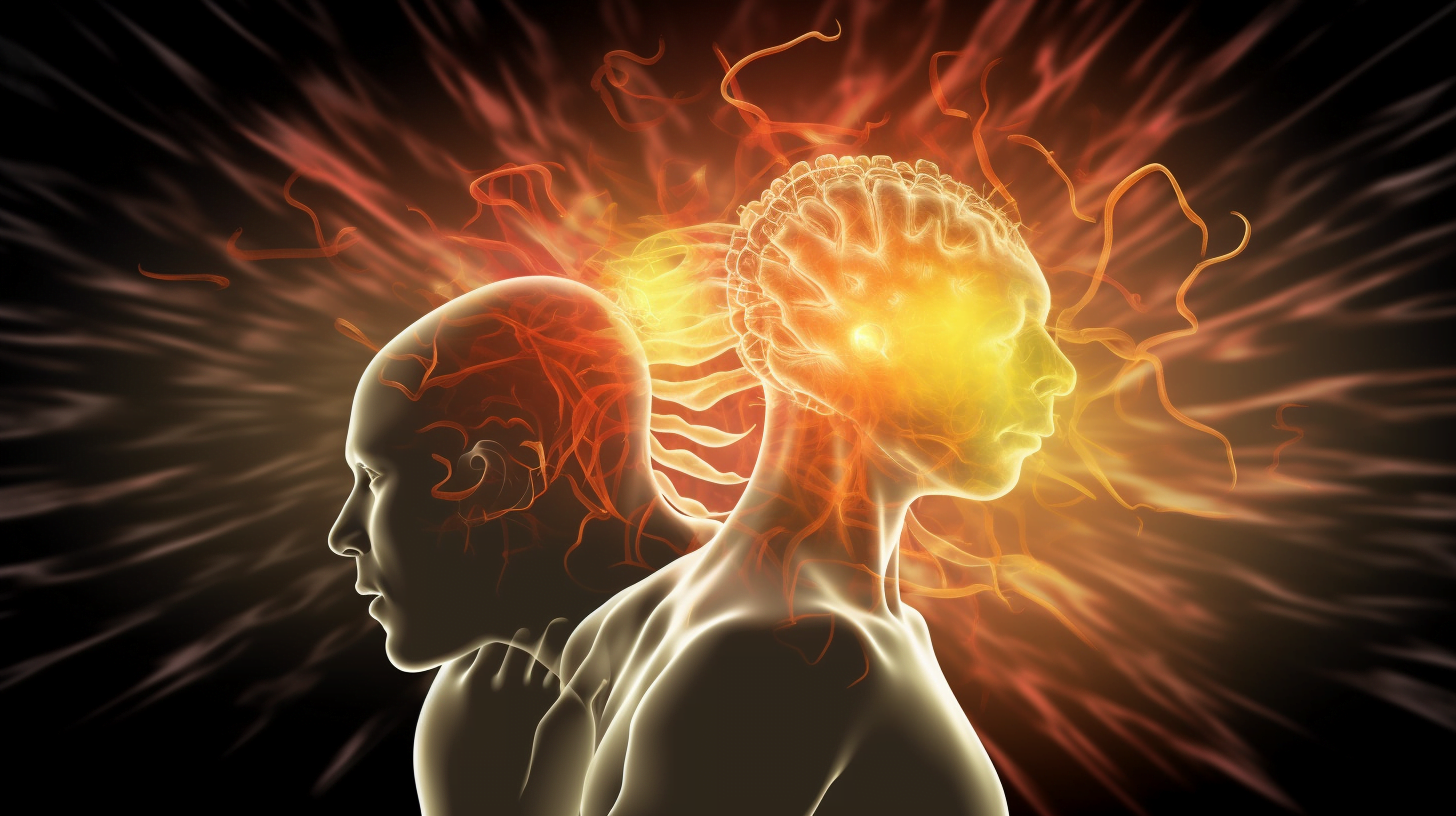Obsessive Compulsive Disorder (OCD) Treatment in Philadelphia, PA
Welcome to Elium Health, a leading provider of comprehensive mental health services in the Greater Philadelphia area. We operate four state-of-the-art facilities, each devoted to helping individuals navigate their unique mental health journeys. Obsessive Compulsive Disorder (OCD) is one of the common disorders that we encounter frequently and specialize in. Our dedicated team of professionals is highly experienced in providing effective, compassionate treatment for OCD, empowering our patients to regain control and live fulfilling lives. Discover how Elium Health can support you or your loved ones on the path to wellness.
Schedule an appointment, ask questions, or talk about something else we haven’t covered. Our qualified experts are here to help you navigate your Obsessive Compulsive Disorder treatment journey!
What is Obsessive Compulsive Disorder?
Obsessive-Compulsive Disorder, commonly known as OCD, is a mental health disorder that affects people of all ages and walks of life. It is characterized by a cycle of obsessions and compulsions. These obsessions are unwanted, intrusive thoughts, images, or urges that trigger intensely distressing feelings. In response, individuals with OCD develop compulsive behaviors in an attempt to suppress or alleviate their anxiety or distress.

For example, an individual might have obsessive thoughts about germs and cleanliness, leading them to compulsively wash their hands to the point of causing physical harm. It’s important to understand that these compulsions are not performed out of pleasure, rather, they are carried out as a method of coping with the overwhelming anxiety and fear.
The severity of OCD can vary from person to person. For some, it can be a minor annoyance, easily managed with the right tools and strategies. For others, it can be debilitating to the point of interfering with daily activities like work, school, and personal relationships.
OCD is often misunderstood and stigmatized, but it’s a real, serious condition. The good news is that it’s also treatable. With the right treatment plan, which often includes therapy, medication, and self-care strategies, individuals with OCD can manage their symptoms and lead healthy, productive lives.
Remember, if you or someone you know is struggling with OCD, there is help available. Reach out to a trusted healthcare provider to discuss your options. At Elium Health, we’re committed to providing compassionate, effective care for those living with OCD.
What are the causes of OCD?
The exact cause of Obsessive-Compulsive Disorder (OCD) remains unknown, but several factors are believed to play a role in its development.
Biologically, OCD may be a result of changes in the body’s natural chemistry or brain functions. Brain scans have indicated that the activity in the brain is different for individuals with OCD, suggesting an abnormality in the brain’s circuitry could be a contributing factor.
Genetics also play a significant role in the onset of this disorder. Research suggests that you’re more likely to develop OCD if a family member has it, indicating a hereditary link.
Environmental factors such as ongoing anxiety or stress, or experiencing a stressful event like a car accident or starting a new job, could trigger OCD or exacerbate its symptoms. It’s important to note that while stress doesn’t directly cause OCD, it can precipitate symptoms in individuals who are genetically predisposed or already have a subclinical case of the disorder.
Certain life events or changes, such as pregnancy or hormonal fluctuations, might further influence the underlying causes of OCD. Additionally, some studies suggest an association between childhood trauma, such as abuse or neglect, and the development of OCD.
Low levels of serotonin, a type of neurotransmitter, have been associated with OCD. This neurotransmitter has a variety of functions, and a deficiency can create serious and anxiety-producing issues, marking many anxiety disorders, including OCD.
Despite these potential causes, OCD is a complex disorder with likely multiple contributing factors. It’s crucial to remember that OCD is a common, chronic, and long-lasting disorder in which a person has uncontrollable, reoccurring thoughts (“obsessions”) and/or behaviors (“compulsions”) that they feel the urge to repeat over and over, classifying it as a mental illness. With proper diagnosis via a psychological evaluation and a tailored treatment plan comprised of a variety of mental health services, individuals with OCD can effectively manage their symptoms and lead fulfilling lives.
What are the symptoms of OCD?
Obsessive-Compulsive Disorder (OCD) is characterized by two main types of symptoms: obsessions and compulsions. It’s important to note that these symptoms can vary widely among individuals and can change over time. If you or someone you know is showing signs of OCD, it’s crucial to seek professional help. Early diagnosis and treatment can significantly improve quality of life and control over symptoms.
Obsessions
Obsessions are persistent, unwanted thoughts, ideas, or images that cause distress or anxiety. Common obsessions in OCD include fear of coming into contact with contaminated substances such as germs or dirt, fear of causing harm to oneself or someone else due to carelessness, and unwanted thoughts or mental images. Other obsessions can involve excessive concern about evenness or exactness, a need to know or remember information, and fear of losing or forgetting important things.
Compulsions
Compulsions are behaviors that an individual feels compelled to perform repeatedly in response to an obsessive thought. Common compulsions can include excessive or ritualized hand washing, showering, brushing teeth, or toileting. Repeated cleaning of household objects, ordering or arranging things in a specific way, and hoarding are also typical compulsive behaviors seen in individuals with OCD.
Certain individuals may feel stressed when objects are out of place and find it challenging to leave home until they’ve arranged things in a particular way. These compulsions often become consuming and interrupt daily life, causing significant distress and interference.
How to treat OCD?
Obsessive-Compulsive Disorder (OCD) is a complex mental health condition, but it’s important to know that effective treatments are available that can help manage its symptoms. The treatment approach typically involves a combination of therapies tailored to the individual’s needs. Here are some commonly used treatments for OCD:
Psychotherapy
Also known as talk therapy or individual therapy, this is often the first line of treatment for OCD. The most common form of psychotherapy is Cognitive Behavioral Therapy (CBT). CBT helps individuals change pattern of their thoughts and gives them strategies to develop and improve their coping skills so they can manage their obsessions and compulsions. Specifically, Exposure and Response Prevention (ERP), a form of CBT, has been found to be the most effective treatment.
OCD Medication
Certain types of psychiatric medications, particularly those in the class of drugs known as selective serotonin reuptake inhibitors (SSRIs), can be effective in managing OCD. These medications increase the levels of serotonin in the brain, which can help reduce obsessive thoughts and compulsive behaviors. When utilizing prescription drugs as part of a mental health treatment plan, it is helpful to ensure that medication management is utilized.
Transcranial Magnetic Stimulation (TMS)
TMS is growing in popularity for treatment of a variety of mental health disorders. It is a non-invasive procedure that uses magnetic fields to stimulate nerve cells in the brain. It’s typically used when other treatments haven’t been successful.

Speak To An Expert Near Me
Our well trained and compassionate staff at Elium Health is here to help answer your questions about Obsessive Compulsive Disorder. Book an appointment with us or call us on: 866-552-3758
Where to get diagnosed and treated for Obsessive Compulsive Disorder near me in Philadelphia?
Elium Health has 4 mental health centers spread out across the Delaware Valley:
- Doylestown -2325 Heritage Center Drive Suite #401, Furlong, PA 18929
- Newtown Square – 4729 West Chester Pike Newtown Square, PA 19073
- Philadelphia City Center – 3 N 2nd St 3rd Floor, Philadelphia, PA 19106
- Newtown – 12 Penns Trail Suite #101 Newtown, PA 18940
Each of our facilities provides a variety of mental services to treat a range of disorders. Our well regarded teams are here if you or your loved one is seeking diagnosis and treatment for OCD. Contact us today to see how you can get started.
Additional Information about OCD and mental health in Philadelphia
See below for additional notes about OCD and mental health and their impacts on Philadelphia.
How to get treated for OCD near me
Finding the a successful treatment team for OCD is crucial. There are several options to find treatment for Obsessive-Compulsive Disorder (OCD) near you:
Treatment Centers: There are numerous centers dedicated to treating OCD, like Elium Health’s 4 centers. They can provide information about different types of outpatient treatment available OCD Treatment Center.
Mental Health specialists: Psychiatrists specialize in diagnosing and treating mental health disorders such as OCD. These doctors can prescribe and manage medication and also administer psychotherapy.
Contact insurance provider: Your health insurance company can provide a list of mental health professionals and services that they cover in your area.
- Therapist Directories: Websites like Psychology Today host extensive directories of therapists specialized in treating OCD. Such directories can help you find a therapist that fits your needs and preferences.
What is Philadelphia known for?
Philadelphia, affectionately known as Philly, is the most populous city in the Commonwealth of Pennsylvania and holds the distinction of being the second-most populous city in the Northeastern United States. Known for its rich history, Philadelphia was the birthplace of many iconic American principles and documents, including the Declaration of Independence and the U.S. Constitution, earning it a reputation as the birthplace of life, liberty, and the pursuit of happiness.
Today, Philadelphia offers countless attractions and activities for residents and tourists alike. From its vibrant arts and culture scene, world-class museums, diverse culinary offerings to its passionate sports culture embodied by teams like the Philadelphia Eagles, there’s always something to do in Philly.
However, Philadelphia has also faced challenges. The city experienced a population decline starting in the 1950s, largely due to white and middle-class families moving to the suburbs. Additionally, issues related to litter and cleanliness have been persistent problems, particularly in neighborhoods undergoing rapid change.
Despite these challenges, many people find Philadelphia to be a great place to live. Its rich history, affordable cost of living compared to other major cities in the Northeast, and cultural vibrancy make it an attractive destination for various individuals and families.
Get Started Now
Contact Elium Health today for In-Person and Telehealth Appointments.